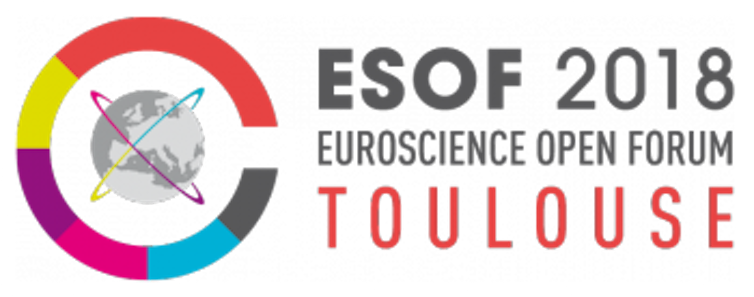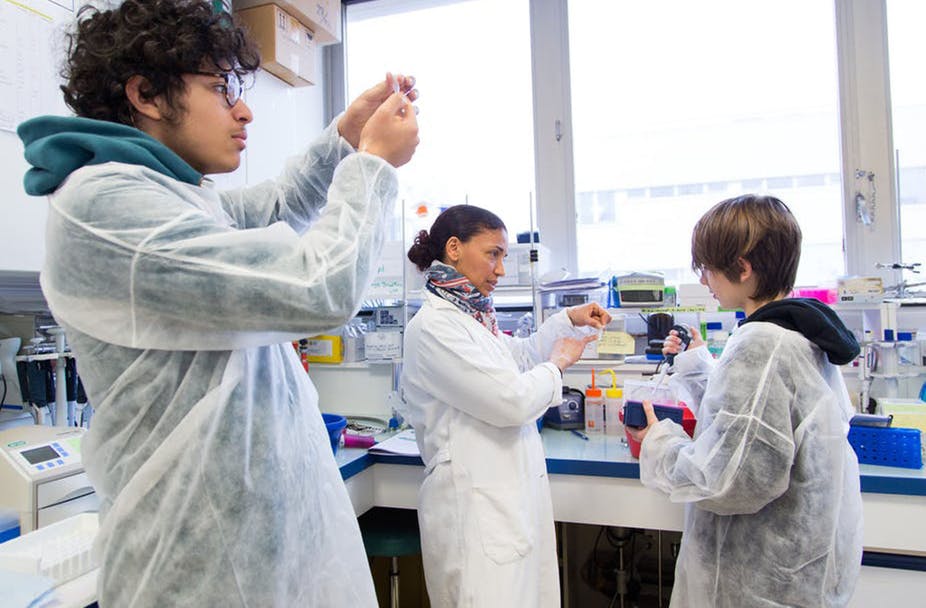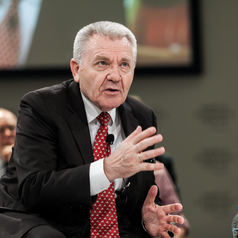This article is published as part of the EuroScience Open Festival (ESOF), of which The Conversation France is a partner.
Since its inception, the European project has benefitted citizens from all walks of life in every corner of our continent in countless ways. One of them are the contributions it has made to the development of research in Europe in steps marked by the increasing ambition and scope of the EU’s multi-annual framework programmes for research and innovation. The current one, Horizon 2020, is built on three pillars: Excellent Science, Industrial Leadership and Societal Challenges. The next, Horizon Europe, that will cover the period 2021-2027, is being negotiated between the European Commission, the European Parliament and the Council.
Presently, scientists working in Europe produce about a third of all new scientific results worldwide. This often happens through collaborations with researchers in Europe or other parts of the world. While collaboration and competition are second nature to top scientists, over the past 30 years, a shift has taken place with researchers in Europe being encouraged to work more closer together through the EU framework programmes and the establishment of the European Research Area from 2000.
ESOF, open science
The growing intensity of the exchange between scientists at the European level is also mirrored by the increasing success of the EuroScience Open Forum (ESOF), which is attracting a growing number of scientists eager to engage across disciplines and with society at large, as well as with journalists attending the biannual event. In the context of my association with the EuroScience grassroots association, I had the privilege to be part of the forum from its inception in 2004 until I became the President of the European Research Council (ERC) in 2014. ESOF has now become a major event worldwide, where all science stakeholders meet and connect – researchers, policy-makers, politicians, and also the general public through a special citywide programme.

Poster, ESOF 2018. ESOF
With its long tradition in science, the city of Toulouse takes centre stage this year, welcoming some the thousands of participants to ESOF 2018. I expect an intense week, celebrating science and the pursuit of knowledge in all fields and in many forms. The ERC – the premier pan-European funding programme supporting high-risk, high-gain research projects at the frontiers of knowledge since its creation in 2007 – will take part in ESOF with over eight sessions on topics ranging from the next-generation robotic surgery, clean flights, science diplomacy as well as gender balance in science, to name just a few.
Much of the ground-breaking new science being featured at ESOF is funded by the EU, including through the ERC, as part of the first pillar of Horizon 2020. The ERC grants are open to the brightest minds from around the world on the condition that they conduct the majority of their work at a European host institution. The ERC has raised the ambition level of European researchers, in particular those early in their careers, by entrusting them with scientific freedom and substantial funding for up to five years. Receiving an ERC grant also provides visibility and recognition.
Scientific curiosity
The European Research Council is truly bottom-up in nature, letting researchers follow their scientific curiosity and pursuing risky, innovative projects – and it works. A recent evaluation conducted by Clarivate Analytics at its own initiative positions the ERC as the research programme with the best performance worldwide regarding the 1% most cited publications produced.
It is well-known that investing in this type of high-level, blue-sky research generates tangible benefits for society at large. For example, it contributes to our better understanding the challenges that our society faces, helps us combat diseases and makes it possible to monitor and tackle environmental problems. This benefits not only citizens across Europe, but also people around the world, as the output of science is a common good with a global reach.
The EU’s efforts to support scientists in their most ambitious endeavours also helps put Europe at the forefront of building scientific expertise and capacity. These are key elements for the competitiveness of our continent in the challenging environment in which we live. With other countries, particularly in Asia, investing massively in the knowledge-based economy, Europe – both at national and EU levels – needs to continue investing in and nurturing its top talent and attracting more bright minds from further afield.



 Blue Origin’s New Glenn Achieves Breakthrough Success With First NASA Mission
Blue Origin’s New Glenn Achieves Breakthrough Success With First NASA Mission  Trump Signs Executive Order to Boost AI Research in Childhood Cancer
Trump Signs Executive Order to Boost AI Research in Childhood Cancer  Neuralink Plans High-Volume Brain Implant Production and Fully Automated Surgery by 2026
Neuralink Plans High-Volume Brain Implant Production and Fully Automated Surgery by 2026  JPMorgan Lifts Gold Price Forecast to $6,300 by End-2026 on Strong Central Bank and Investor Demand
JPMorgan Lifts Gold Price Forecast to $6,300 by End-2026 on Strong Central Bank and Investor Demand  BTC Flat at $89,300 Despite $1.02B ETF Exodus — Buy the Dip Toward $107K?
BTC Flat at $89,300 Despite $1.02B ETF Exodus — Buy the Dip Toward $107K?  FxWirePro- Major Crypto levels and bias summary
FxWirePro- Major Crypto levels and bias summary 
































